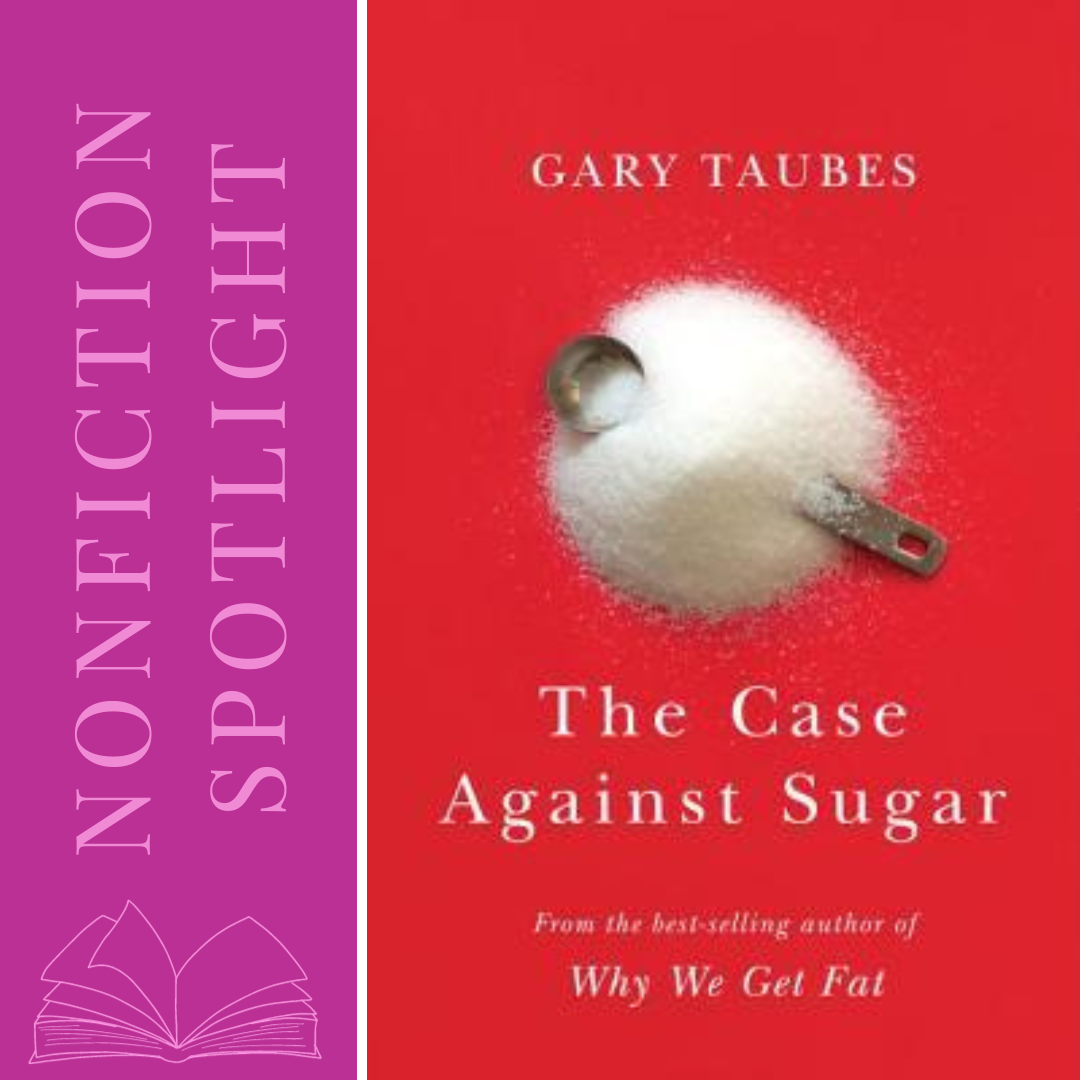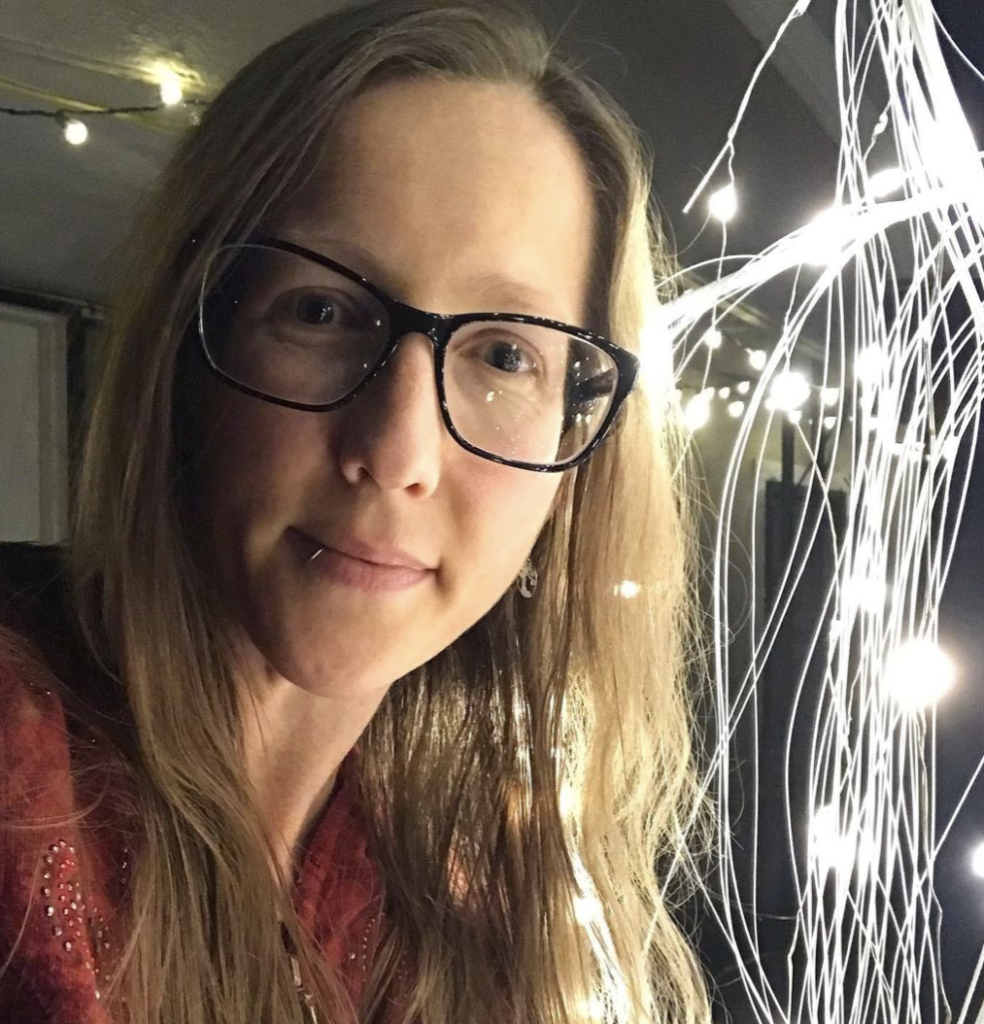This year instead of making New Year resolutions that I often don’t keep for long, I’m experimenting with a year of health. Each month I will focus on one health topic like nutrition, sleep, or stress management.
I will read at least one nonfiction book on the subject in the first half and implement what I’ve learned in the second. Possibly longer if the research and experiment is convincing.
January Topic: Cutting Out Sugar
January’s health focus was cutting out sugar. This is something that we often try to do in our household. We read labels carefully and make what food we can from scratch in an effort to minimize sneaky added sugar.
I have a major sweet tooth though so it always finds a way back in. If I give into a craving or indulge in a special dessert celebration, the whole cycle starts over.
After hearing years ago that The Case Against Sugar by Gary Taubes inspired Gretchen Rubin, creator of the Four Tendencies Framework, to give up sugar for good, I decided to give the book a try in January.
Review: The Case Against Sugar by Gary Taubes

In The Case Against Sugar, Taubes literally builds a case for sugar consumption being the cause of modern western society’s health epidemics with obesity, diabetes, and liver disease. He digs into the history of sugar, how it came to be so prevalent, and how societies have gotten sicker as it’s introduced. He also covers sugar’s addictive nature and the ways the medical field got our nutrition guidelines all wrong.
Taubes extensively gathered historical information, research studies, medical standpoints, court cases, and followed the money trail of the sugar industry. He ties together things missed by the medical community or flat out taken as fact with no scientific evidence behind it that set our society on this path to bad health.
He also sheds light on the sugar industry’s power and influence in the way it advertised over the years, waged campaigns against artificial sweeteners, and swayed, hid, or bought studies to justify it’s presence in our food.
The most interesting takeaways:
- Medical schools differ from other fields of science in that students are taught what to believe and rarely given the evidence for why so these beliefs are not often questioned.
- Sugar stimulates the reward center in the brain just like nicotine, cocaine, and heroin. In lab studies, rats addicted to heroin will choose sugar sweetened water over the drug.
- “By the 1920s, sugar refineries were producing as much sugar in a single day—millions of pounds—as would have taken refineries in the 1820s an entire decade.”
- Sugar was one of the few industries that grew during the Great Depression. When people have a limited amount of money for food they will purchase the sweet empty calories over more nutritious options.
- Cigarettes were made more addictive and more deadly by literally sugar coating tobacco.
- In 1963 (before the height of sugar consumption in the 1990s), nutritionist John Yudkin wrote, “We now eat in two weeks the amount of sugar our ancestors of 200 years ago ate in a whole year. Sugar provides about 20 percent of our total intake of calories and nearly half of our carbohydrate.”
- “When populations underwent Westernization, chronic diseases emerged with it, whether rapid or not, and typically in the same order, beginning with periodontal disease (tooth decay), gout, obesity, diabetes, and hypertension, and eventually encompassing all of them.”
- If it can’t be proven to be the cause, sugar certainly worsens diseases like obesity, heart disease, diabetes, cancer, and Alzheimer’s.
- We have no idea how much sugar is too much sugar. Due to the massive amount consumed by generation after generation, studies show how the children born from those affected by these diseases are more likely at younger ages to develop the same ones. There may be no amount of sugar that is safe.
Final Verdict:
This book took me longer to read than I expected, a little longer than the first two weeks of January. It’s very dense which is great because it’s full of facts, citations, and medical studies, but it takes awhile to get through. The timeline also jumps around throughout the book’s sections and even within each chapter. This made it difficult to keep track of.
I’m very glad I read it though. I loved the startling revelations behind our nutrition guidelines for the past 50 plus years and why they don’t work. I also really enjoyed learning about the history of sugar in the beginning section of the book. Now with hindsight, we can trace so many of these health issues popping up and rising with sugar consumption.
The Case Against Sugar is the most thorough, compelling, and informative book I’ve ever read for the dangers of sugar and why not to eat it.
At the end of last year, we watched a documentary called Fat Fiction that I think pairs nicely with some of the information in this book. Both discuss how the medical community got it wrong by blaming saturated fat for heart disease and recommending a low fat and high carbohydrate diet to the general population.
How Did I Do With Cutting Out Sugar?
That depends on the definition of cutting out sugar. I definitely did a lot better cutting out sweets once the leftover holiday candy was gone. We were derailed by some late edible Christmas gifts.
I’m not good at moderation so it’s easier for me to just not have these items in the house tempting me. Once there are brownies on the counter or ice cream in the freezer, I want to eat it every night.
But what about the sugar that is hidden in so much of our processed food? That’s why we try to make so many things from scratch including soups, sauces, and dressing with whole ingredients.
Sometimes it just isn’t possible. For instance, I know our whole wheat sandwich bread has some sugar in it. Yet we hadn’t mastered baking sandwich loaf bread. At times you have to choose your battles.
We also use raw honey sometimes and very occasionally maple syrup. The raw honey has a lot of other benefits but it breaks down to the same components as white sugar, fructose and glucose. We’re still consuming sugar though in a raw unprocessed form.
While this book was very informative on why sugar is bad for us, it had less applicable advice for cutting back on sugar or how to be sure it isn’t hiding in some of your food. In fact according to the book, the only way to cut sugar out completely is to stop eating any processed food. There are probably other books that offer label information and strategies for this.
For us right now, being more aware, making what we can from scratch, and eliminating sugary desserts is good enough.
February’s Book Pick

I first encountered Esther Perel with her Ted Talk, The secret to desire in a long-term relationship. I loved how she called modern couples on the need to have your partner be everything, best friend, lover, confidante, biggest supporter, and so on. It is exhausting to fill those roles! Perel argues that good sex is based on two conflicting needs, security and surprise. She shares how creating an element of space and mystery keeps passion going.
Over the years, Esther Perel has been a guest on some of my favorite podcasts like Dear Sugar. She now has her own podcast called Where Should We Begin? On it, she shares therapy sessions with various couples to try to inform and help a larger audience. I’ve had her first book, Mating in Captivity, on my Kindle for awhile. With Valentine’s Day coming up, February seems like a great month for reading about the paradox between domesticity and desire.
Is better health one of your New Year resolutions? How are you taking on that extensive topic?





